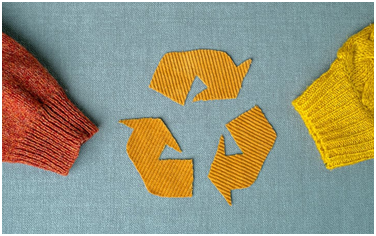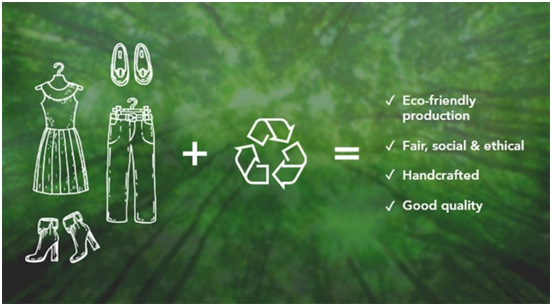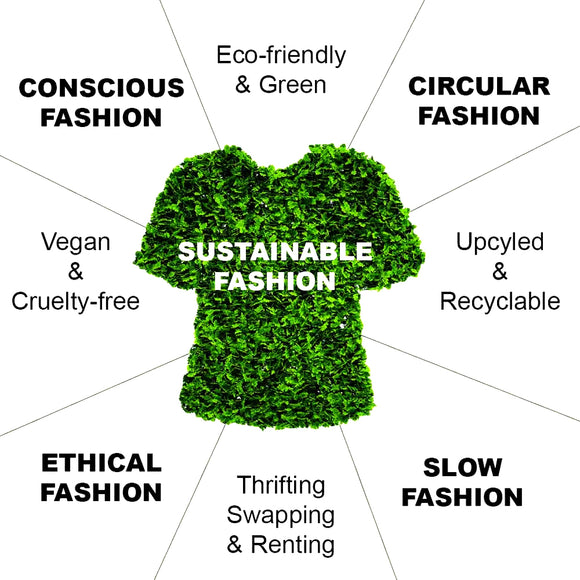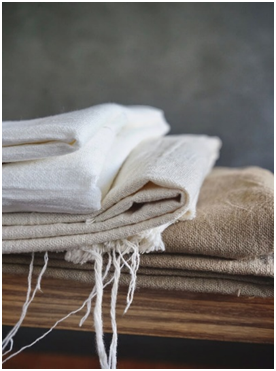why sustainable fashion is important!

It comes as a surprise to many that most clothes are actually made out of plastic, creating a microplastic disaster in the making.
The industry is one of the world’s largest polluters, responsible for 20% of global industrial water pollution. Second only to oil.
Add to that, the thousands of harmful chemicals used in the textile mills around the world, that are dangerous to both the environment and the people working with them.
The time has come for a global change in the industry. That change must come in the form of sustainable fashion.
what does sustainable fashion mean?
Sustainable fashion is creating fashion items in a way that reduces the environmental impact and promotes social responsibility throughout an entire production process.
Sustainable fashion emphasises the use of natural and organic materials, such as linen, hemp and organic cotton that is grown and harvested without harmful pesticides and chemicals. These materials are biodegradable and do not contribute to the buildup of waste in landfills.
Sustainable fashion aims to create fashion items that are environmentally friendly, socially responsible, and economically viable.
responsible production
Organic fashion emphasises responsible production, which includes minimising waste, reducing energy consumption, and using renewable energy sources. This includes choosing manufacturing processes that are less harmful to the environment, such as using natural dyes instead of toxic chemicals.


responsible distribution
Sustainable brands promote the responsible distribution and consumption of items. This means ensuring that the supply chain is ethical and that workers are paid fair wages and work under safe and humane conditions. Green fashion also emphasises reducing overconsumption and creating durable, long-lasting clothing items.
forms of sustainable fashion
Eco-Friendly Brands – specialise in sustainable and ethical practices. These brands use natural and organic materials, fair trade certified, and are transparent with their supply chains.
Circular Brands - are a closed-loop system of clothing design,
production, and consumption that aims to reduce waste. It involves recycling and upcycling materials and promoting the repair and maintenance of clothes.
Slow Fashion - emphasises quality over quantity. It is about producing durable and timeless clothes that can be worn for many years rather than making disposable clothes that are consumed quickly and for a cheap price.
Zero Waste - refers to the minimisation of waste throughout the entire life cycle of a garment, from production to disposal and using biodegradable materials.
Upcycling and Recycling- involves taking pre-existing materials or clothing and repurposing them into something new and of higher value. Recycling involves breaking down materials like plastic bottles or old clothes and turning them into new products.
Fairtrade Practices - ensures all workers involved in the manufacturing process are paid fairly and work in safe conditions. It also means using materials that are sourced in an ethical and sustainable way.

fashion that is ethically made and environmentally friendly
Ethical Practices – is about responsible sourcing, transparent supply chains, and the reduced usage of water and energy consumption in the manufacturing process.
Organic & Natural Materials - like organic cotton, linen and hemp that is grown without pesticides and other chemicals. It also includes natural materials like wool, silk and cashmere. They are renewable and biodegradable making them more sustainable and longer lasting than synthetic materials.
Natural Dyes – made from plants, fruits and vegetables are a natural way to colour your fabrics. Fabric with natural colours are non-toxic, skin friendly, biodegradable and more environmentally friendly than chemical alternatives.






